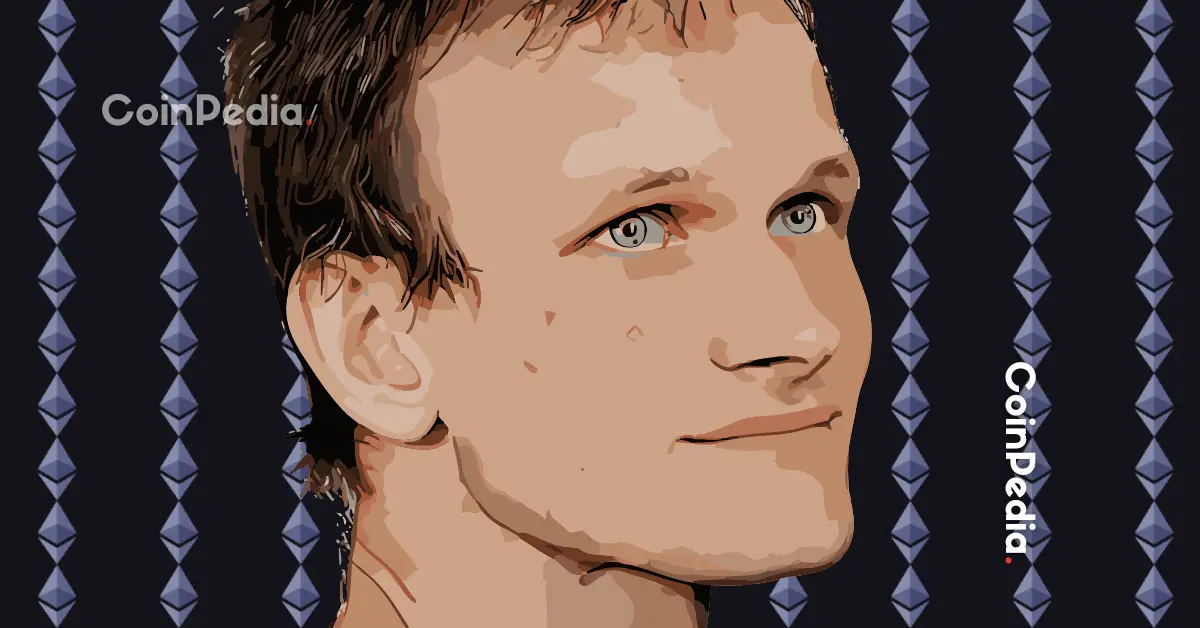
Vitalik Buterin called out Peter Thiel, saying he is “not a cypherpunk,” highlighting their opposing ideologies.
Thiel’s Straussian philosophy supports surveillance and centralized power, clashing with crypto’s cypherpunk roots.
Buterin backed gradual “ossification” of Ethereum but warned against elite influence, urging wider decentralization.
Ethereum co-founder Vitalik Buterin has sparked debate after taking a swipe at billionaire investor Peter Thiel. In a post on X, Buterin wrote:
“Reminder that Peter Thiel is, to put it mildly, not a cypherpunk.”
The comment wasn’t random. Buterin attached a passage from Thiel’s 2007 essay The Straussian Moment, drawing attention to the sharp contrast between Thiel’s philosophy and the values that built the crypto movement.
Thiel’s Surveillance Worldview
In the essay, Thiel leans on the ideas of political philosopher Leo Strauss, who believed secrecy and espionage were necessary to protect society.
Thiel wrote: “The most just society cannot survive without ‘intelligence,’ i.e., espionage… Instead of the United Nations… we should consider Echelon, the secret coordination of the world’s intelligence services, as the decisive path to a truly global pax Americana.”
That line alone explains Buterin’s frustration. Crypto was born from cypherpunk ideals that are privacy, decentralization, and protecting individuals from surveillance. Thiel’s vision points in the opposite direction.
A History of Clashing Beliefs
Thiel’s Straussian leanings go back decades. At Stanford, he studied under Strauss-inspired thinkers and even co-founded The Stanford Review, a conservative student paper influenced by those ideas.
His skepticism of democracy is also well-documented. In 2009, he declared: “I no longer believe that freedom and democracy are compatible.”
On the business side, his track record fits that worldview. Palantir, the company he co-founded, is a backbone of U.S. government surveillance.
And in crypto, he’s no small player – Thiel holds a 9.1% stake in BitMine Immersion Technologies (BMNR) and 7.5% in ETHZilla, two of Ethereum’s largest treasury firms.
Cypherpunks vs Power Politics
This is where the clash becomes obvious. Cypherpunks – the movement that inspired Bitcoin and later Ethereum – fought for tools that keep people safe from central control. Their philosophy was about openness and individual freedom.
Thiel’s Straussian approach promotes secrecy, elite-driven systems, and surveillance. Buterin’s post made one thing clear: Thiel may invest in Ethereum, but his values don’t align with the foundation crypto was built on.
The Ethereum Debate: Should It “Ossify”?
After Buterin’s post, a community member raised concerns about powerful figures gaining influence in Ethereum. They suggested Ethereum should eventually “ossify” like Bitcoin, meaning the protocol would stop evolving to reduce risks of centralization.
Buterin agreed with the principle, writing: “I support gradual ossification and becoming much more cautious about large changes to the protocol once short-term scaling, lean Ethereum and tech debt cleanups are done.”
However, he pushed back against narrowing Ethereum’s leadership, saying the solution is to widen and balance core research and development instead of closing ranks.
On one side lies the cypherpunk vision of decentralization and transparency. On the other, the risk of corporate and elite influence. Stay tuned for more if Thiel replies.
Never Miss a Beat in the Crypto World!
Stay ahead with breaking news, expert analysis, and real-time updates on the latest trends in Bitcoin, altcoins, DeFi, NFTs, and more.
FAQs
Vitalik Buterin is a programmer and co-founder of Ethereum, one of the world’s largest blockchain platforms.
Yes, Vitalik Buterin is considered a crypto billionaire, largely due to his Ethereum holdings and related investments.
Cypherpunk ideals are the foundation of crypto, advocating for strong privacy, decentralization, and tools that protect individuals from corporate or government surveillance and control.
Trust with CoinPedia:
CoinPedia has been delivering accurate and timely cryptocurrency and blockchain updates since 2017. All content is created by our expert panel of analysts and journalists, following strict Editorial Guidelines based on E-E-A-T (Experience, Expertise, Authoritativeness, Trustworthiness). Every article is fact-checked against reputable sources to ensure accuracy, transparency, and reliability. Our review policy guarantees unbiased evaluations when recommending exchanges, platforms, or tools. We strive to provide timely updates about everything crypto & blockchain, right from startups to industry majors.
Investment Disclaimer:
All opinions and insights shared represent the author's own views on current market conditions. Please do your own research before making investment decisions. Neither the writer nor the publication assumes responsibility for your financial choices.
Sponsored and Advertisements:
Sponsored content and affiliate links may appear on our site. Advertisements are marked clearly, and our editorial content remains entirely independent from our ad partners.








